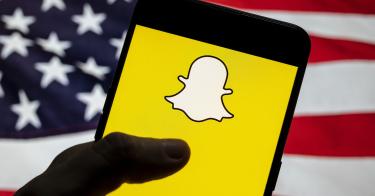The Supreme Court issued a win Wednesday for Brandi Levy, a former Mahanoy Area School District student known to court watchers as the “cussing cheerleader.” But the court’s decision made it unclear what other types of student speech a public school can censor.
After failing to make her school’s varsity cheerleading squad, Levy posted two Snapchat images with vulgar language and gestures. School officials discovered the posts and suspended Levy from the junior varsity cheerleading squad for the upcoming year. Levy sued, arguing that punishing her for her speech violated the First Amendment.
In the 8-1 opinion penned by Justice Stephen Breyer, the court agreed with Levy. But similar to Fulton v. City of Philadelphia, the court did not provide ironclad protection for the First Amendment or specify under what circumstances First Amendment rights must give way to a governmental interest.
Instead, the court determined that while public schools may have an interest in regulating some off-campus speech, the specific facts of Levy’s case were insufficient to overcome her interest in free expression.
The 1969 Tinker v. Des Moines Independent Community School District decision determined that schools have a special interest in regulating on-campus student speech that “materially disrupts class or involves substantial disorder or invasion of the rights of others.” In Mahanoy Area School District v. B.L., judges had to determine if this also applies to off-campus student speech.
Breyer said schools’ license to regulate student speech does not always disappear when speech occurs off campus. He outlined three features that distinguish a school’s efforts to regulate off-campus versus on-campus speech.
First, Breyer said that a school rarely stands in loco parentis (in place of the parent) when a student speaks off campus, as that type of speech normally falls within the zone of parental, rather than school-related, responsibility.
Second, Breyer stressed that courts must be more skeptical of a school’s efforts to regulate off-campus speech because doing so may mean the student cannot engage in certain types of speech at all. This student could be censored for everything she utters in a 24-hour day.
Third, the school itself has an interest in protecting a student’s unpopular expression, especially when the expression occurs off campus, because America’s public schools are the “nurseries of democracy.”
This last statement is where free speech advocates and constitutional loyalists can take heart. Breyer, one among the court’s smallish liberal wing, stated:
Our representative democracy only works if we protect the ‘marketplace of ideas.’ This free exchange facilitates an informed public opinion, which, when transmitted to lawmakers, helps produce laws that reflect the People’s will. That protection must include the protection of unpopular ideas, for popular ideas have less need for protection.
Together, the court noted, these features mean that “the leeway the First Amendment grants to schools in light of their special characteristics is diminished. We leave for future cases to decide where, when, and how these features mean the speaker’s off-campus location will make the critical difference.”
Justice Samuel Alito filed a concurring opinion, joined by Justice Neil Gorsuch, in which he agreed with the majority’s refusal to set forth a broad, highly general First Amendment rule governing off-premises speech, but focused on the in loco parentis doctrine.
Alito argued that while the decision to enroll a student in a public school conferred the authority to regulate some off-premises speech, the enrollment does not result in a complete transfer of parental authority over a student’s speech. He said that delegation of authority over regulation of off-campus speech would depend on the nature of the speech and the circumstances under which it might occur.
Only Justice Clarence Thomas dissented, noting that there is no reason to deviate from Tinker and that schools “historically could discipline students in circumstances like those presented here.” He criticized the majority opinion as one creating a new—but unclear—body of law, leaving schools to wonder just how to regulate off-campus speech in the future.
The question is, while Levy’s own free speech rights have been vindicated, under what circumstances can other students be censored or punished for comments they make away from school?
This piece originally appeared in The Daily Signal.



